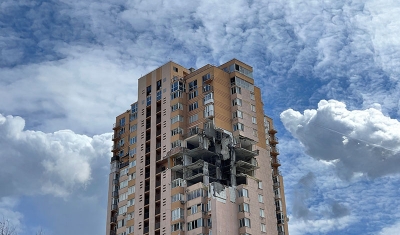The War Report: Armed Conflicts in 2018


Geneva Academy
15 April 2019
In 2018, 69 situations of armed violence amounted to armed conflicts according to international humanitarian law and international criminal law. The vast majority are non-international armed conflicts, as in preceding years.
The 156 pages War Report, edited by our Strategic Adviser on International Humanitarian Law Dr Annyssa Bellal, identifies, describes, and discusses the situations of armed violence that amounted in 2018 to armed conflicts, in accordance with the definitions under international humanitarian law (IHL) and international criminal law (ICL).
In 2018, 69 armed conflicts occurred in 30 states and territories: Afghanistan, Azerbaijan, the Central African Republic (CAR), Colombia, Cyprus, the Democratic Republic of Congo (DRC), Egypt, Eritrea, Georgia, India, Iraq, Lebanon, Libya, Mali, Mexico, Moldova, Myanmar, Nigeria, Pakistan, Palestine, the Philippines, Somalia, South Sudan, Sudan, Syria, Thailand, Turkey, Ukraine, Western Sahara and Yemen.
Five New Non-International Armed Conflicts in 2018
As in previous years, the report highlights that the majority of today’s armed conflicts – 51 out of 69 – are non-international, involving states and organized armed groups, a trend that has been highlighted since the first edition of the War Report back in 2012.
These non-international armed conflicts (NIACs) are taking place in the territory of 22 states, namely Afghanistan, CAR, Colombia, DRC, Egypt, India, Iraq, Libya, Mali, Mexico, Myanmar, Nigeria, Pakistan, the Philip¬pines, Somalia, South Sudan, Sudan, Syria, Thailand, Turkey, Ukraine and Yemen.
‘The 2018 edition classifies as NIACs, as our Rule of Law in Armed Conflict (RULAC) online portal, four new situations of violence in Northern India, as well as the armed violence between armed groups and the United Nations Multidimensional Integrated Mission (MINUSCA) in CAR’ explains Dr Bellal.
Dedicated articles analyse recent developments or particular aspects of the NIACs in CAR, DRC, Mali, South Sudan, Syria, Thailand and Eastern Ukraine.
Focus on Military Occupations
Articles in this year's edition focus notably on some situations of military occupation, to which IHL of international armed conflicts applies, other than the well-known case of Palestine: the military occupation of a small part of Eritrea by Ethiopia, the military occupation of parts of Georgia by Russia and the military occupation of parts of Ukraine by Russia.
‘While these situations are not well known and might sometimes be considered as 'forgotten conflicts', military occupations are often politically sensitive for many states. The authors of the War Report took great care of reminding the history of these conflicts, but also of highlighting the positions of each concerned party’ underlines Dr Bellal.
Armed Gang Violence
Like last year's edition, the War Report continued its exploration of armed gang violence and addresses the situation in Brazil.
‘Despite the high level of armed gang violence in this country, particularly in Rio de Janeiro, we concluded that the armed actors involved do not meet the organization criteria required for IHL to classify the situation as a NIAC‘ explains Dr Bellal.
Regarding armed gang violence in Mexico, the 2018 edition continues to classify, as our RULAC online portal, the armed violence between the government and the Jalisco Cartel New Generation as a NIAC.
Launch
The 2018 edition of the War Report will be launched at our upcoming Current Issues in Armed Conflict Conference that will take place in Geneva on 17 June 2019.
Background
The War Report is an essential reference for experts, governments, policy-makers, NGOs, international organizations, donors, international courts and tribunals, judges and lawyers who work on human rights, humanitarian issues, and peace or security.
With our RULAC online portal, the War Report is the only independent global classification of armed conflicts under international law.
‘Such independent classification is essential as it has far-reaching implications, notably regarding applicable law (and therefore the protections those affected benefit from), the possible commission of war crimes or the work of the International Committee of the Red Cross (ICRC)’ underlines Marco Sassòli, Director of the Geneva Academy.








